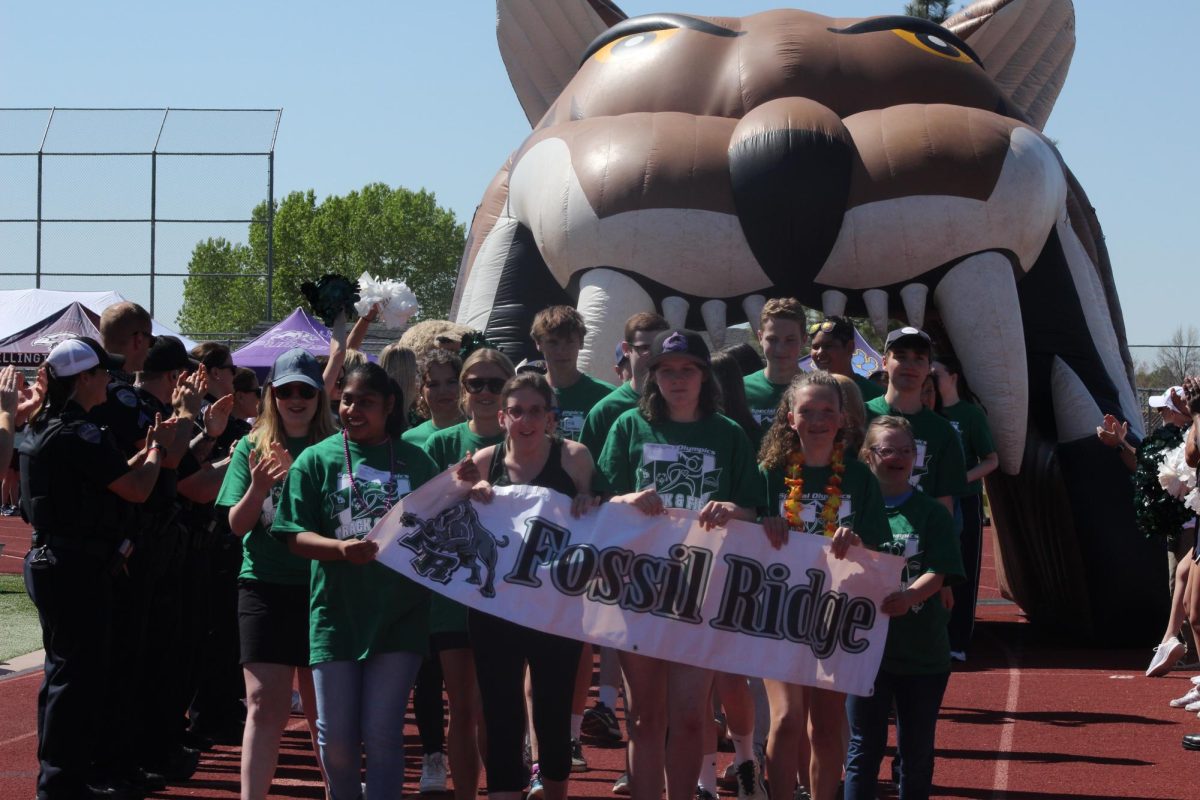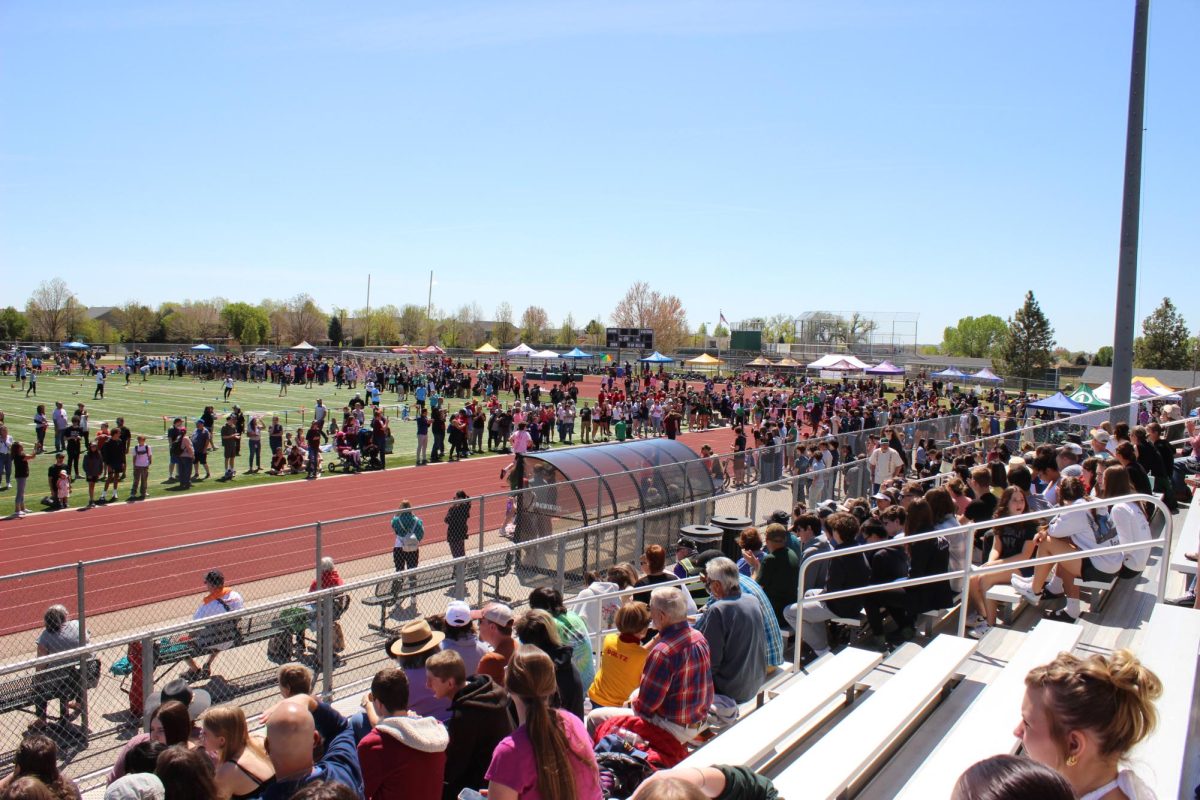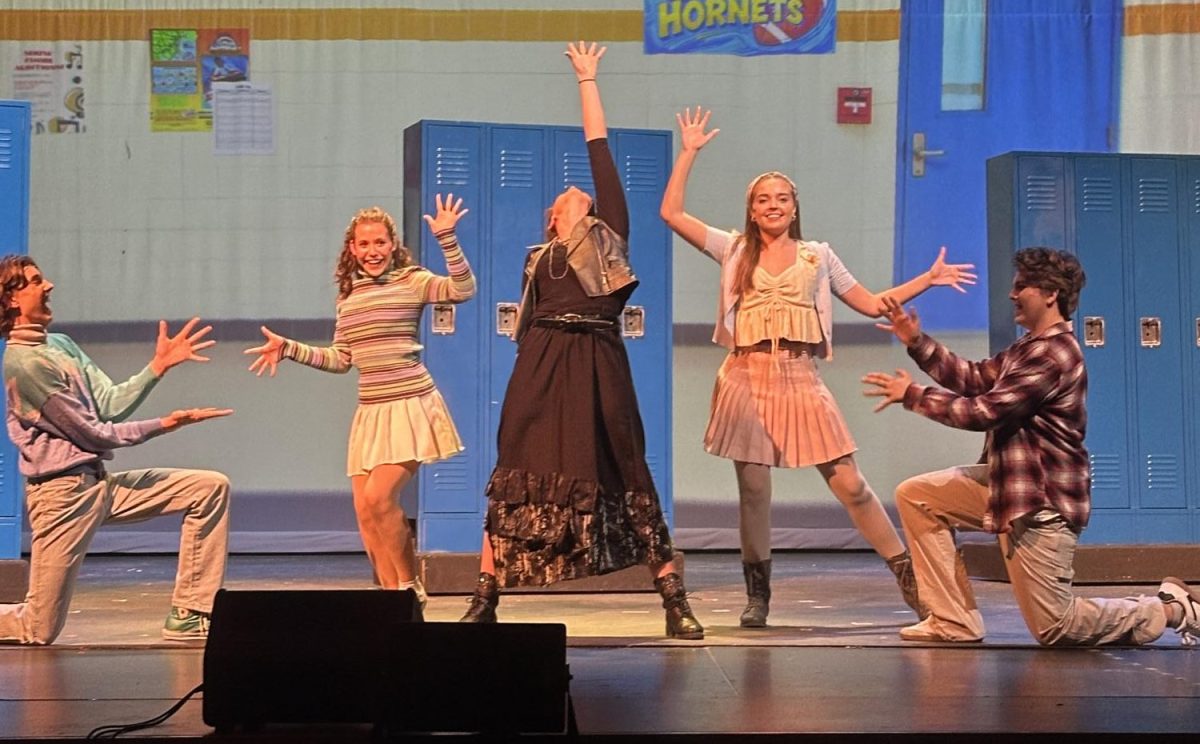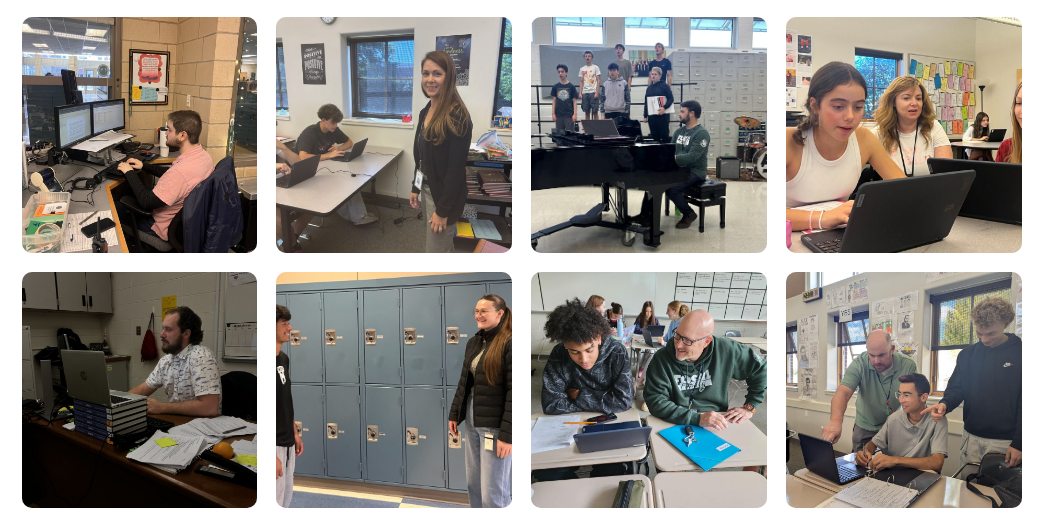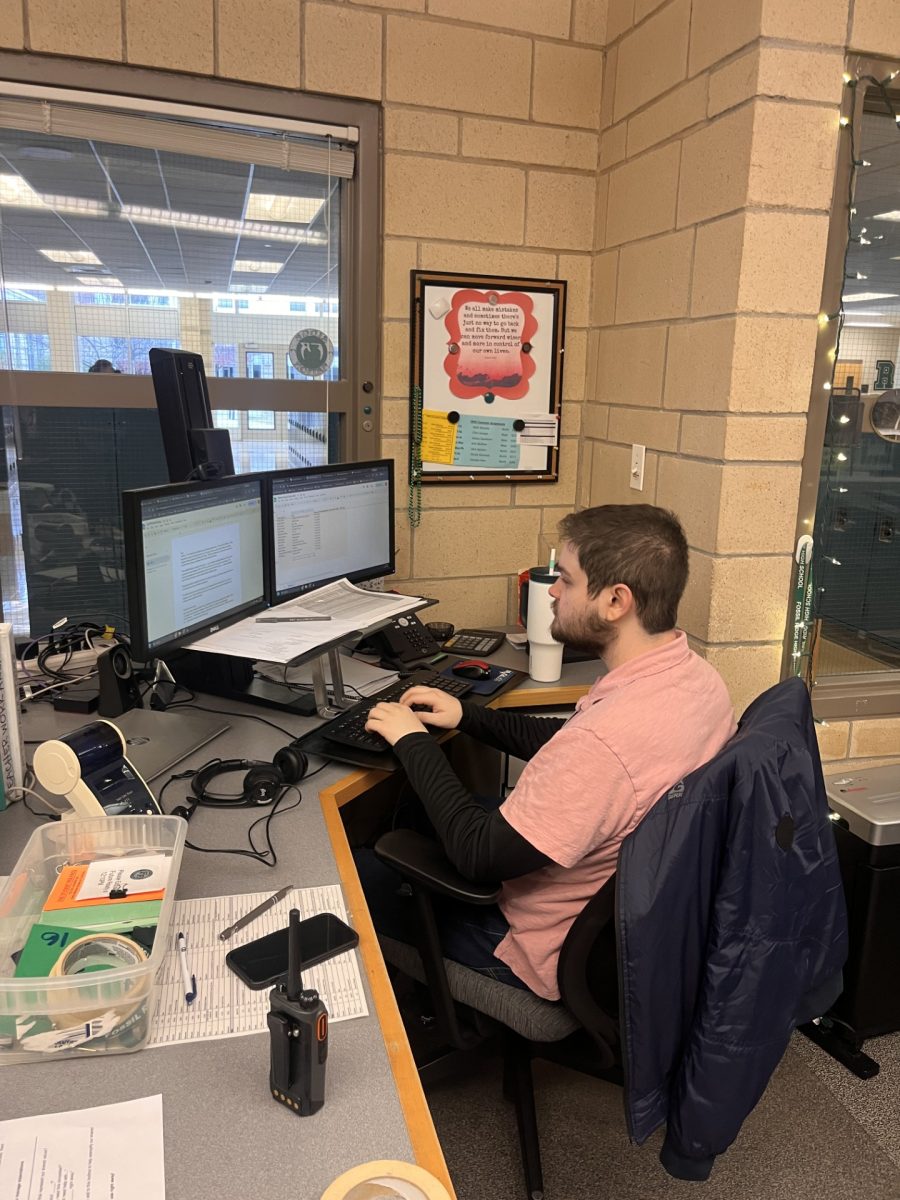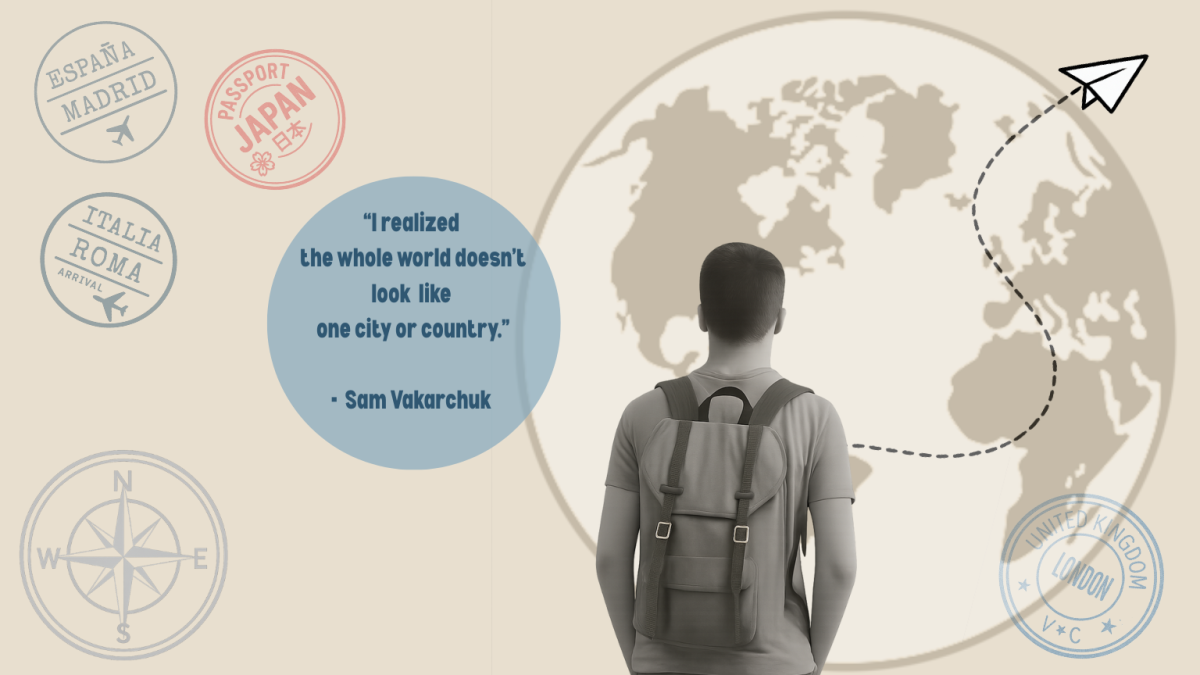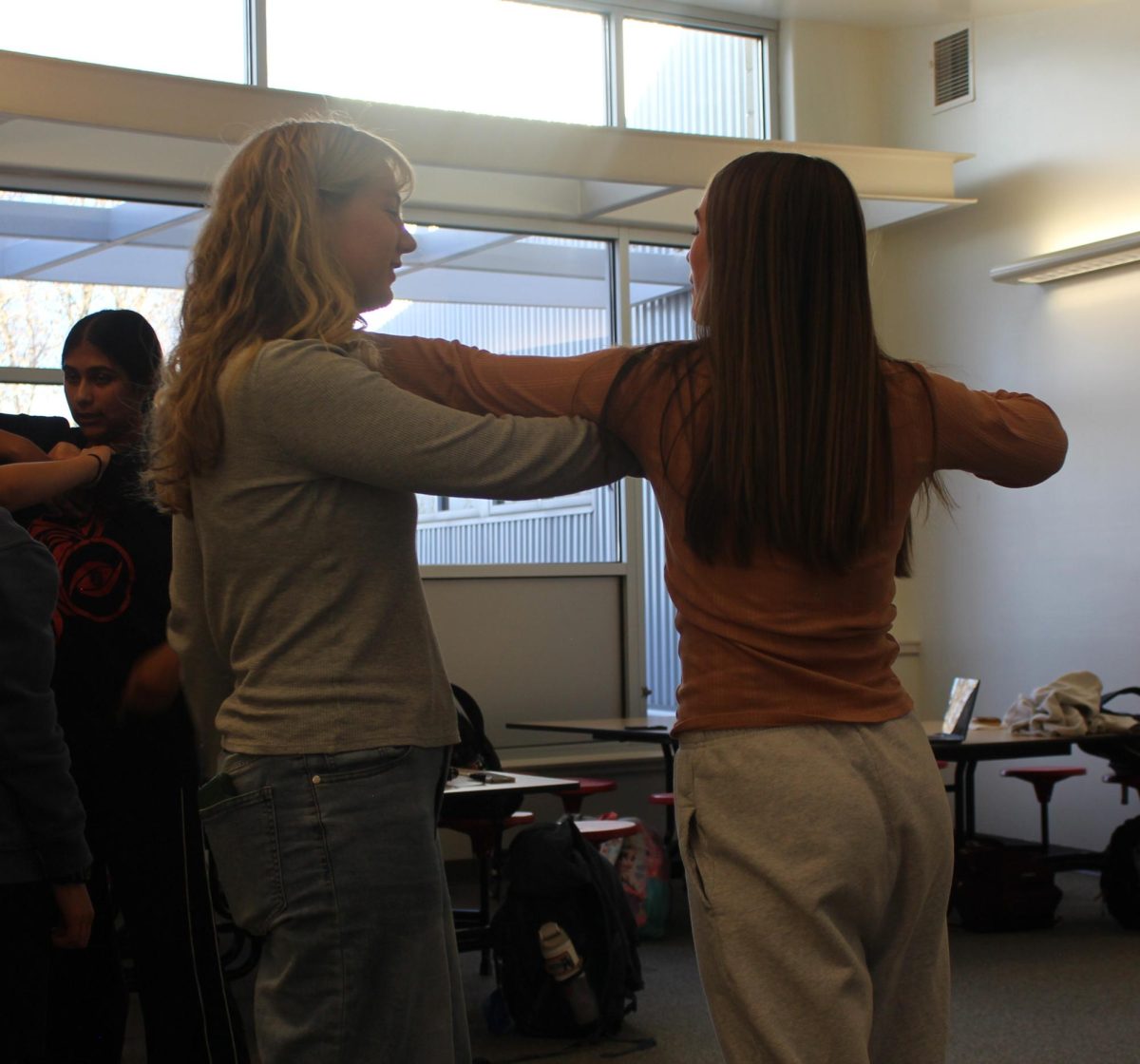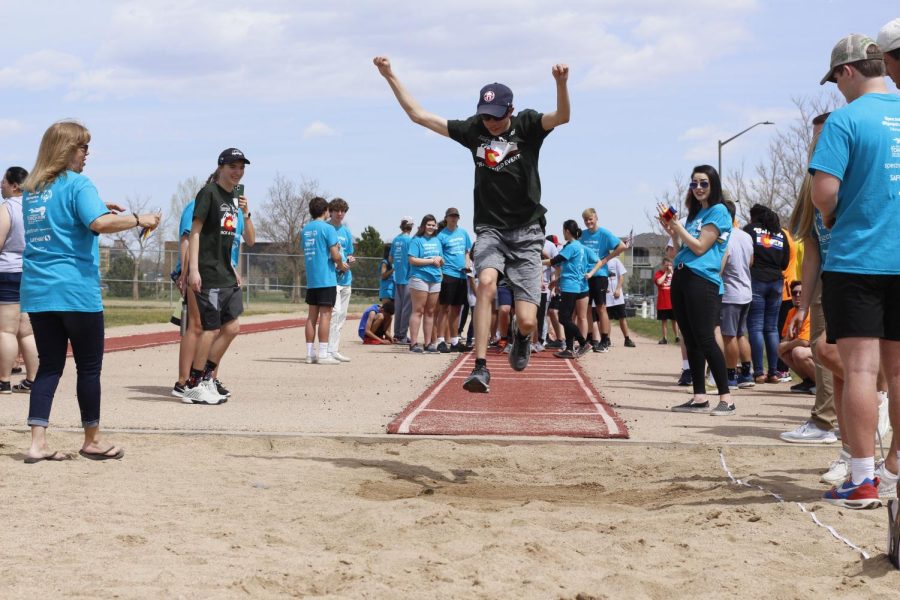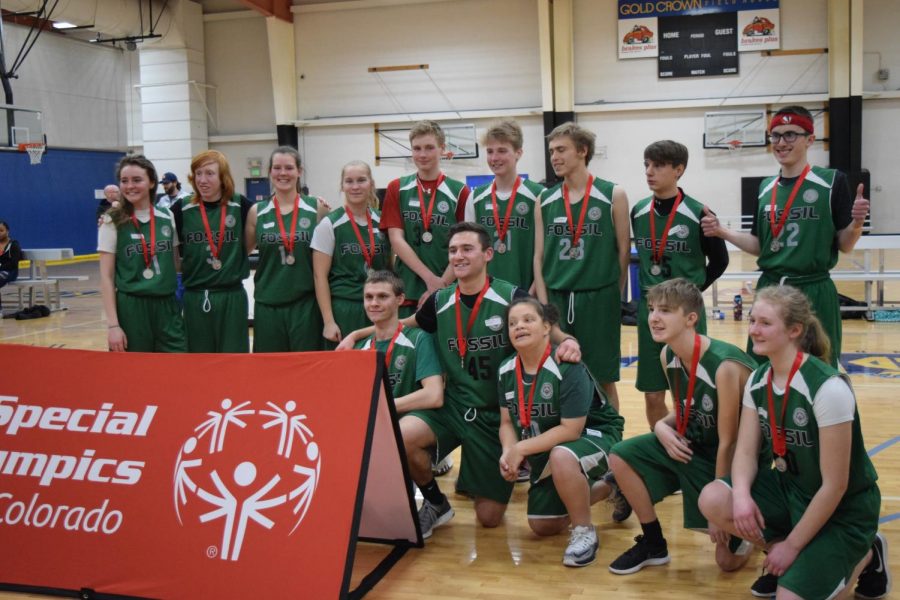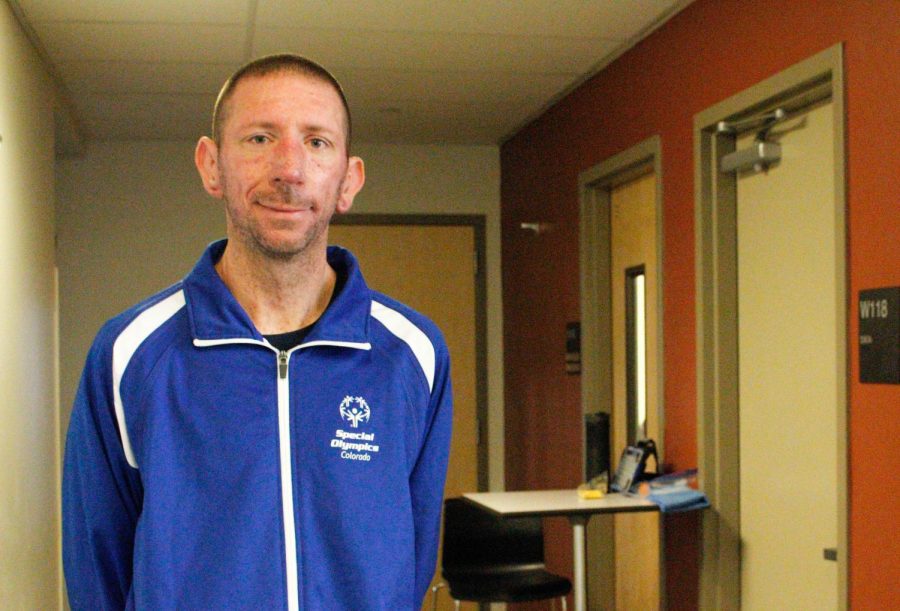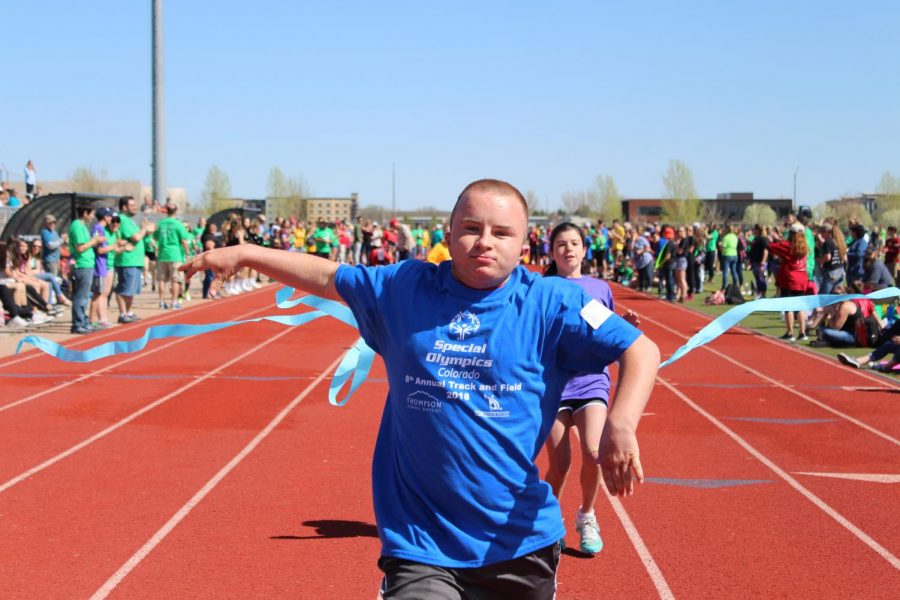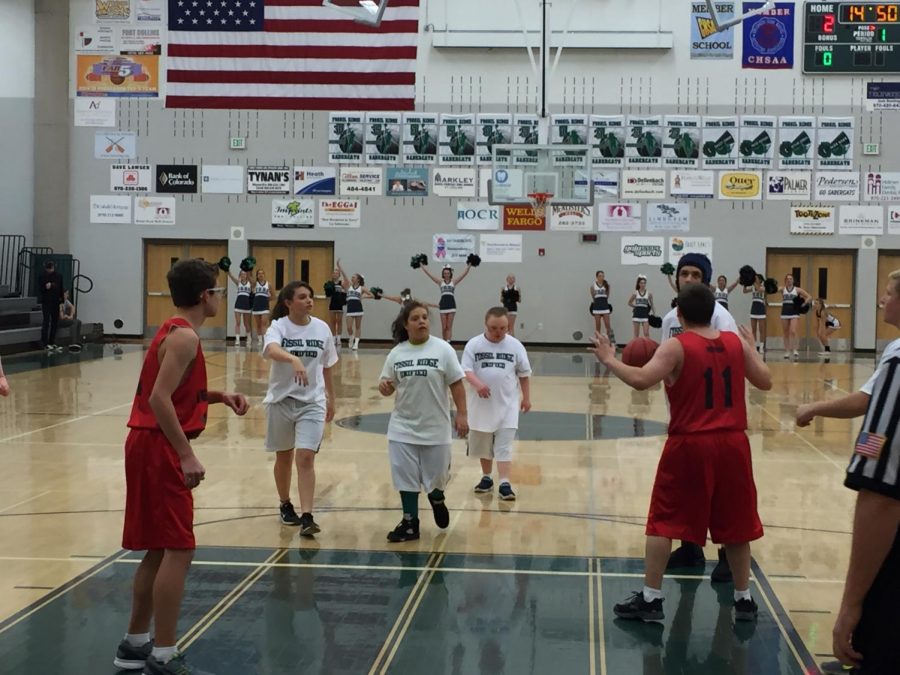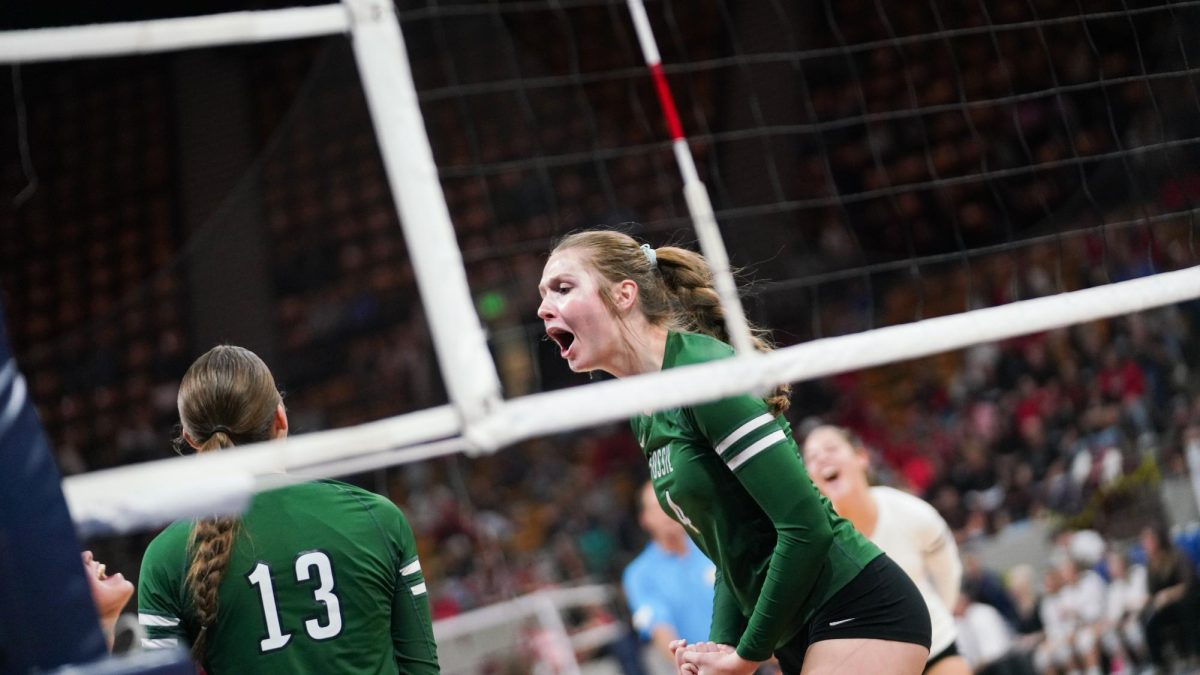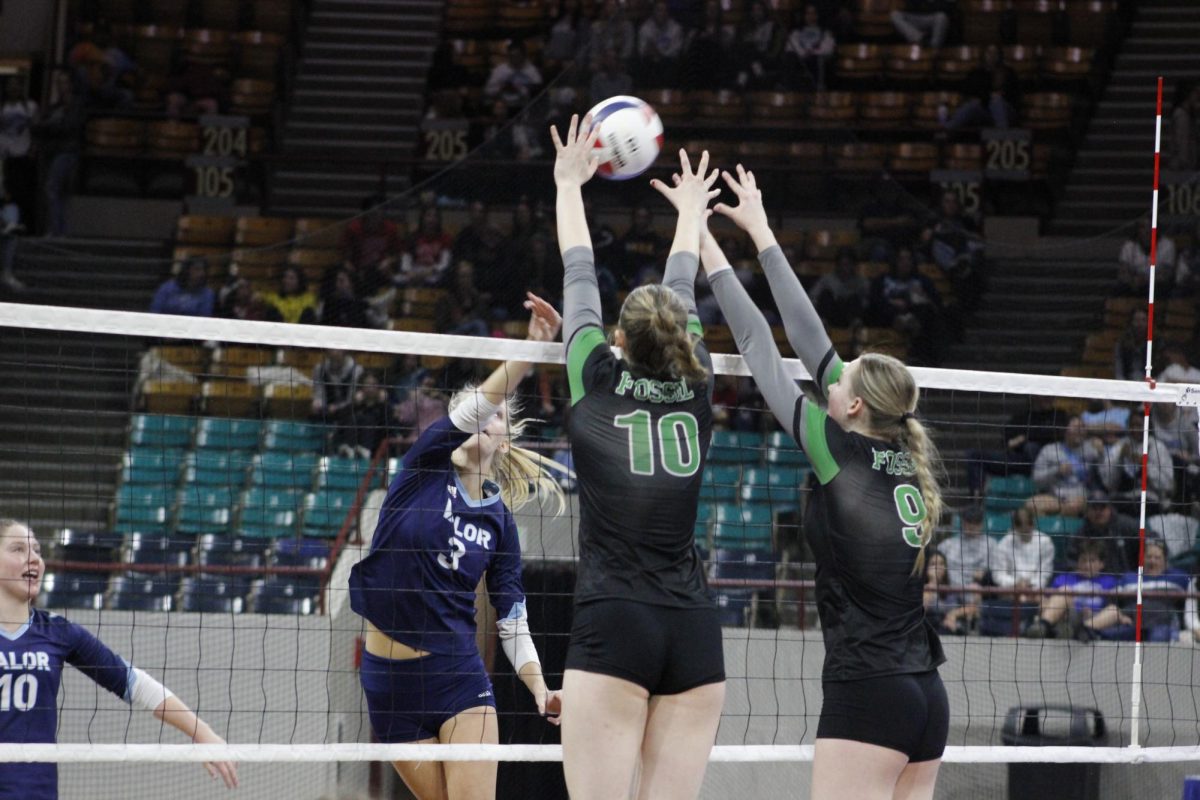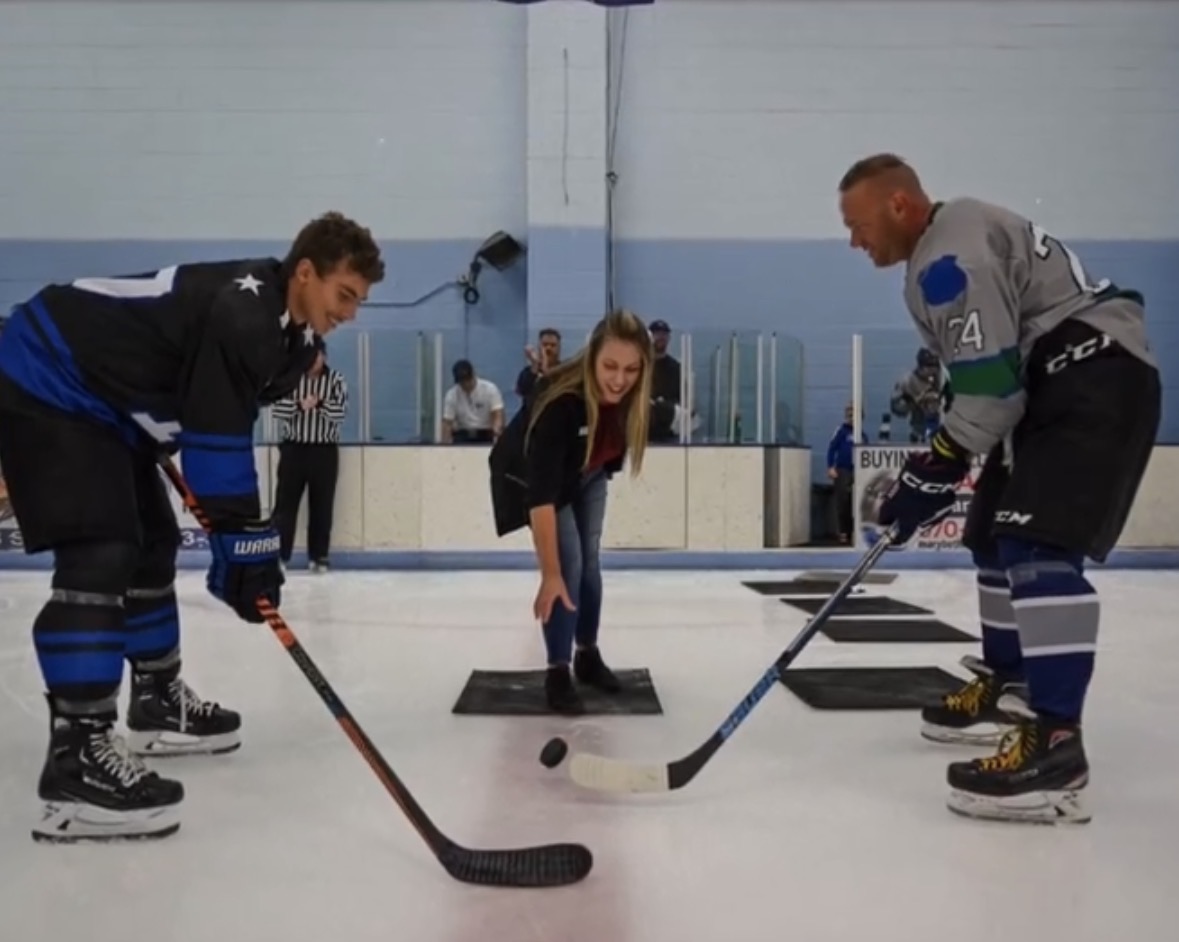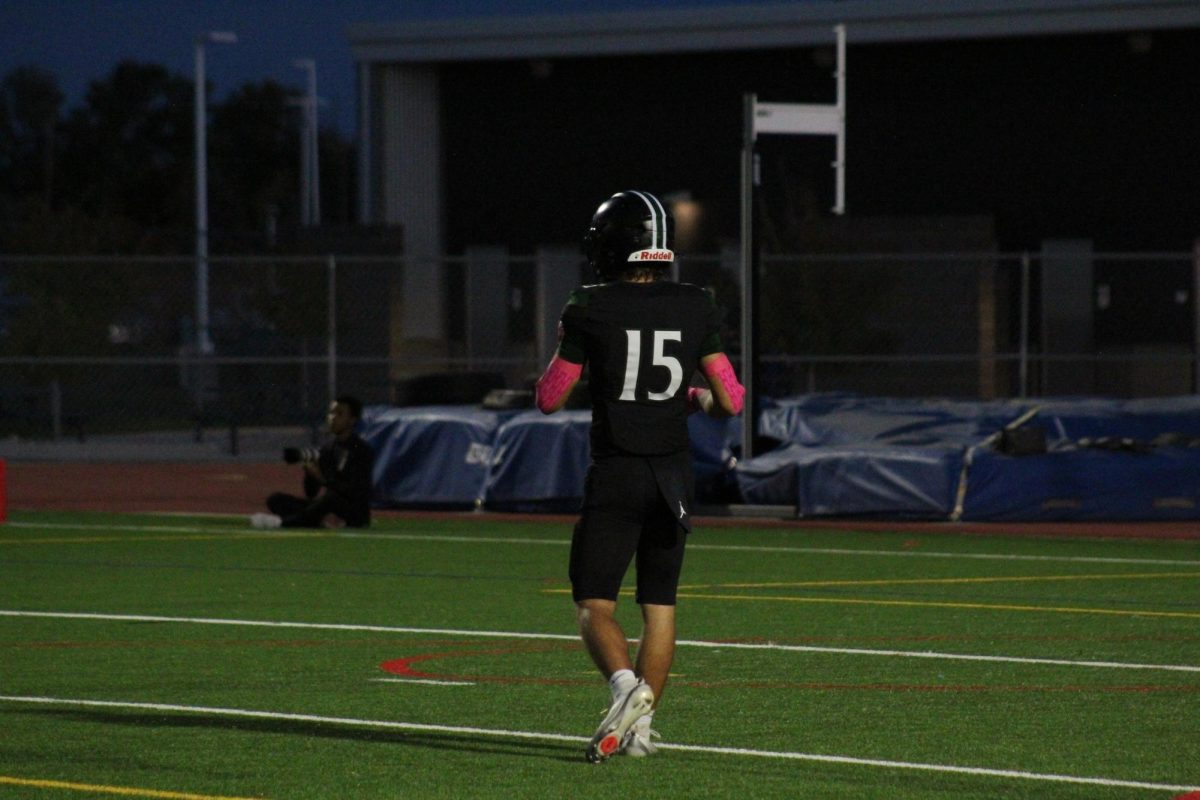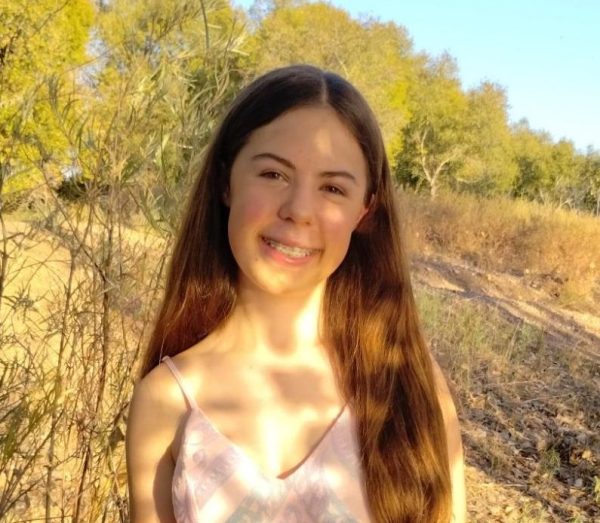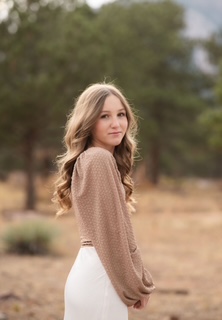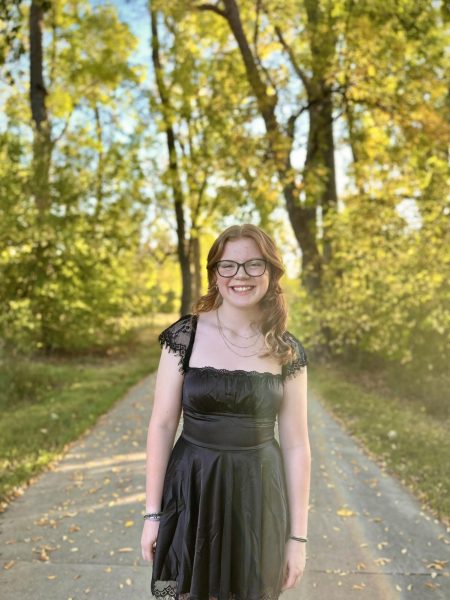On May 2, 325 middle and high school athletes from schools around Poudre and Thompson School Districts gathered together to compete in the 13th annual Special Olympics Track and Field Event.
Special Olympics is a worldwide organization originating in 1968, however was not introduced to Poudre School District until 2012, when Mind Center teacher Kimberly Gardner attended a Special Olympics event in Greeley for her student Kelsey Thomas, and became inspired to introduce the event to Poudre and Thompson School Districts.
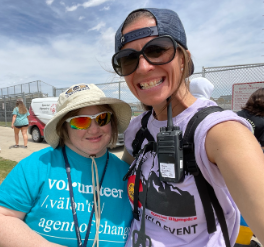
“13 years ago, I went to Fossil Ridge School Administration, and I said we would like to bring this event to Fort Collins…it started with just one connection with one kid and wanting to make her world better,” Gardner said.
Although it started small, the event has since then erupted. This year’s Special Olympics was the largest one yet, with over 300 athletes from 27 different schools.
“Word has gotten out, what…an amazing event it is so more and more people want to support it,” Gardner said.
The Special Olympics provides a place for students with disabilities to participate in a safe and friendly sports competition, with events such as the tennis ball throw, jumping, and wheelchair and foot races of different distances. The event also contributes to the individual growth of the athletes.
“I might grow more fit,” said athlete Oscar Centeno as he explained the personal significance of the event. Centeno competed in the tennis ball throw, standing long jump, 50 meter and 100 meters events.
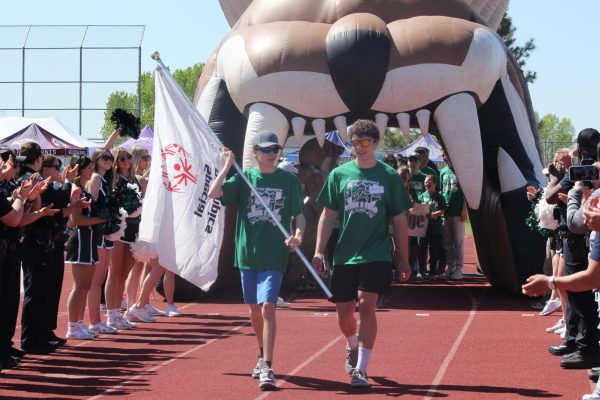
Peer buddies play a substantial role in the execution of the day. This year, over 200 peer buddies supported the athletes as they competed in their events.
“Special Olympics is a chance for a lot of students that don’t always have the opportunity to compete, to be able to compete…have fun, have a[n] Olympics experience, and to win things and make friends,” said Special Olympics peer buddy Jacob Schonlau, a senior who has participated in the event since his freshman year.
The Special Olympics also provides an opportunity for community members and students to support the athletes, and to celebrate them on one of the most momentous days of their year.
“I feel like I’m definitely a lot better of a person,” Schonlau said. “A lot of those kids are really good examples, teaching me a lot about myself.”
The Special Olympics organizations and events have helped to foster an inclusive environment across the globe, providing an opportunity for students with disabilities to represent their schools as athletes.
According to the Special Olympics Organization, the institution consists of more than four million athletes worldwide with the participation of more than 20 thousand schools. The organization has continued to grow every year, with the mission of giving individuals with disabilities a chance to compete in sports and grow their physical health and skills alongside athletes with similar disabilities. At Fossil, the impact of this organization is evident.
“It’s really helped with just the inclusion and the acceptance of our school community of kids who may be neurodiverse or may have different challenges,” Gardner said, reflecting on the importance of the event. “It’s inclusive, it’s community, it’s helping people shine.”
The Special Olympics holds an important place in the hearts of the athletes, instilling confidence and excitement in each and every one of the students that participate in it. Centeno described his favorite part of the event.
“Winning, that’s what I do.”




